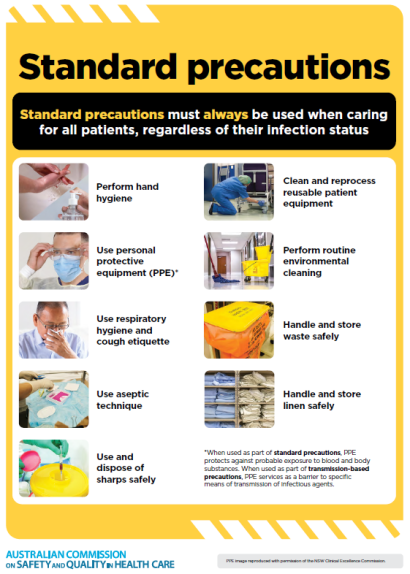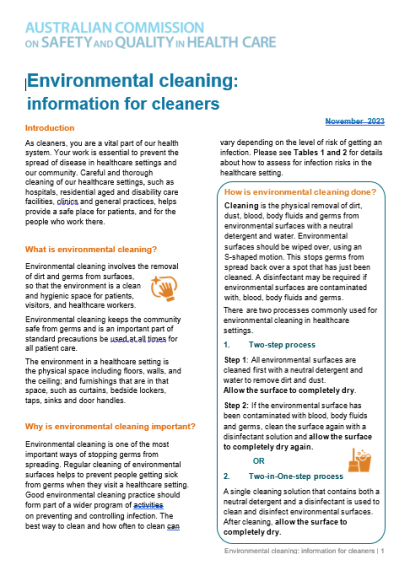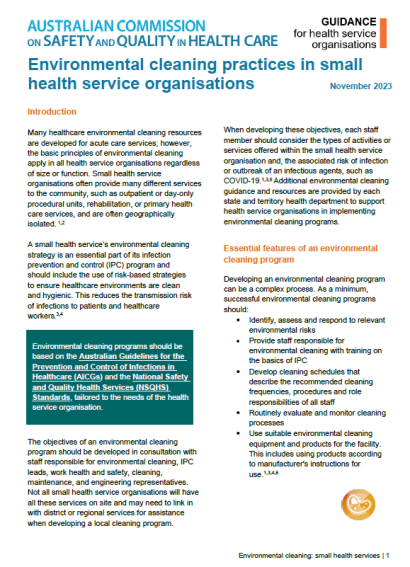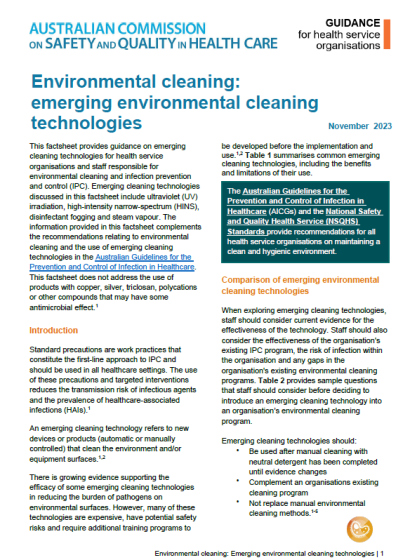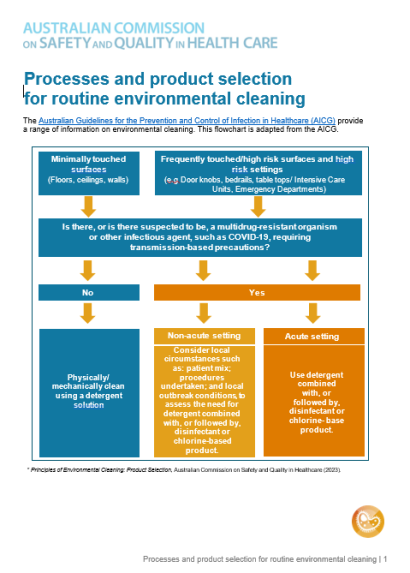Aseptic technique is an element of standard precautions. Aseptic technique is a set of practices that protects patients from healthcare-associated infections and protects healthcare workers from contact with blood, body fluid and body tissue.
Healthcare services implement systems and processes to maximise safe, high-quality care and minimise clinical safety risks.
The NHHI LMS hosts the hand hygiene, infection prevention and control modules and hand hygiene auditor online learning. Health service organisations (excluding aged care) with 10+ staff can register for access to the NHHI LMS.
Registering an organisation allows learners (staff) to link their profiles to your organisation in the NHHI LMS.Organisations do not need to register for its staff (learners) to access the NHHI online learning modules. The organisation name does not appear on any completion certificates.
The NHHI LMS hosts the hand hygiene, infection prevention and control modules and hand hygiene auditor online learning.
The Infection Prevention and Control (IPC) Advisory Committee provides a mechanism for the Commission to consult with experts and key stakeholders on the development and implementation of national initiatives related to IPC.
Infection Prevention and Control (IPC) Week is held during the third week of October each year to highlight the importance of preventing infections. The theme for IPC Week 2025 is A proactive approach to IPC: Identify the risk, Protect patients and the workforce, Control the spread of infection. Everyone has a role in the prevention and control of infections in health care.
The Commission has developed a series of fact sheets for consumers and carers about infection prevention and control, and common and emerging healthcare-associated infections.
Advice on using the data collected through surveys of patient safety culture.
Before starting a patient safety culture project, it is important to take some time to plan out your approach, scope, budget and resources. Agreeing on these fundamental issues will contribute to the success of the project.
World Hand Hygiene Day is held annually on 5 May. The 'Save Lives: Clean Your Hands' global campaign was launched by the World Health Organization (WHO) in 2009.
New resources are now available for World Hand Hygiene Day 2025.
This standard describes the care you should expect to receive if you have a cannula or 'drip'. Find out more about what the standard means for consumers and the information available.
Guidance for clinicians on the ten evidence-based quality statements from the clinical care standard, as well as helpful resources.
Quality statement 8 - Antimicrobial Stewardship Clinical Care Standard
A patient having surgery or a procedure is prescribed antimicrobial prophylaxis in accordance with the current Therapeutic Guidelines or evidence-based, locally endorsed guidelines. This includes recommendations about the need for prophylaxis, choice of antimicrobial, dose, route and timing of administration, and duration.
This resource provides guidance to assist the appropriate placement of patients receiving care in healthcare facilities, which is an important element of transmission-based precautions to prevent the spread of infection.
Quality statement 6
A clinician inserting a patient’s PIVC uses standard precautions, including aseptic technique. The device is secured and a sterile, transparent, semipermeable dressing is applied unless contraindicated.

